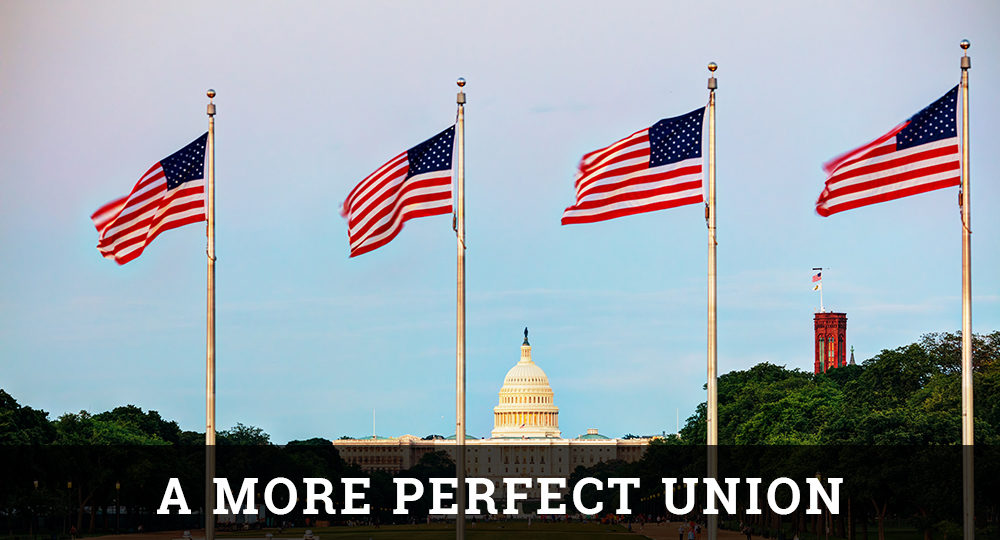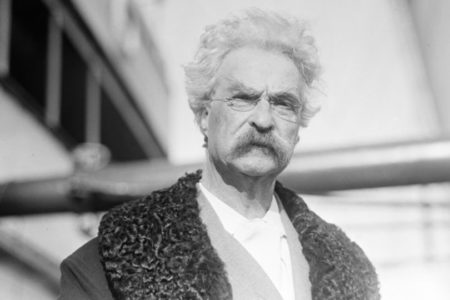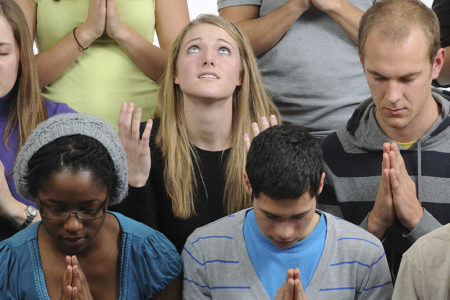Life, Liberty, and the Pursuit of Happiness
The timing was striking. The article appeared in the December 5, 2010, issue of The New York Times. Harvard philosophy professor Sean D. Kelly wrote about what makes a “life worthy of…admiration.”
He noted that today’s religious believers are no longer fixed on the idea that only those lives lived in accordance with a particular view of God can be successful. In other words, he said, “God is dead, therefore, in a very particular sense. He no longer plays his traditional social role of organizing us around a commitment to a single right way to live.”
Regarding those of us who insist that only lives lived consistent with a certain view of God can be truly fulfilled, Professor Kelly wrote, “Society now rightly condemns them as dangerous religious fanatics.” In other words, God is no longer a necessary part of the equation of what makes a happy life. Those who disagree with that thinking are apparently enemies of the State.
The following day, the consequences of Professor Kelly’s faulty logic were played out in a federal courtroom in California. A three-judge panel in the Court of Appeals for the Ninth Circuit was hearing arguments in the Proposition 8 case dealing with the future of traditional marriage in that state, a case that will determine whether same-sex “marriage” will be converted into a constitutionally protected institution.
As I watched the live television coverage of the oral arguments, I observed one of the judges make a telling comment to the lawyer arguing for traditional marriage. The judge indicated that marriage itself seemed to be a mere “word,” implying that the bestowing of official marital status on homosexual relationships was of no real consequence.
Meanwhile, when their turn came up, the attorneys for the gay-rights movement argued that homosexuals should be entitled to marriage with persons of the same sex primarily on two bases. First, equality demands that homosexual couples be treated the same as heterosexual couples. That assumption, though, begs the question: Is a homosexual relationship equivalent to the marriage between a man and a woman after all?
In measuring these two kinds of relationships, however, sameness and differentness become a servant of the second argument. For everyone, even the homosexual advocates, agrees that there are differences. The point is whether those differences are significant enough to deny the “happiness” of homosexuals.
And here is where we see the second train of reasoning advanced by the pro-gay lawyers. They argued that their clients should have the same right to marital happiness as heterosexuals do and that happiness in the context of the institution of marriage ought to be judged almost exclusively by the subjective desires of citizens. It is the hurt feelings, the outrage felt by same-sex couples that ought to weigh heavily, rather than an objective, fixed, moral standard.
But what is forgotten is the source of that oft-used phrase pursuit of happiness. It comes from the Declaration of Independence, where we are reminded that our “unalienable rights,” chiefly “life, liberty and the pursuit of happiness,” come from our “Creator.” When we view it in the modern culture-war context, it is “happiness,” not “marriage” that has become a mere empty shell of a word when it is divorced from God, the source of all true happiness.
The gay-rights lawyers and their clients have committed what C. S. Lewis once called the fallacy of “naturalism,” the tendency to view all of life as contained entirely within the visible, the empirical, the experiential. Transcendent values become meaningless unless connected to a modern appetite that can be satisfied only in sensate, physical terms.
I was reminded how wrongheaded this current, politically correct definition of happiness is when I was glancing through a recent book by pastor and masterful preacher Stuart Briscoe. Flowing Streams: Journeys of a Life Well Lived is a retrospective on his life of ministry. In the preface, he shares the true secret to a successful, fulfilled life. It comes from John 7:38, where Jesus tells His listeners that “whoever believes in me, as the Scripture has said, streams of living water will flow from within him” (NIV).
In verse 39, we also learn that the “living water” is the Spirit of God who flows through people who receive His Son. The Bible reminds us that a life well-lived does not come from the natural order of things, but from God’s supernatural order lived out in the lives Jesus Christ has transformed.
This is the message America needs to hear. Until our nation hears this truth and receives it, we will continue to hear happiness defined in the kind of shabby, shallow terms that were debated in a California courtroom.







